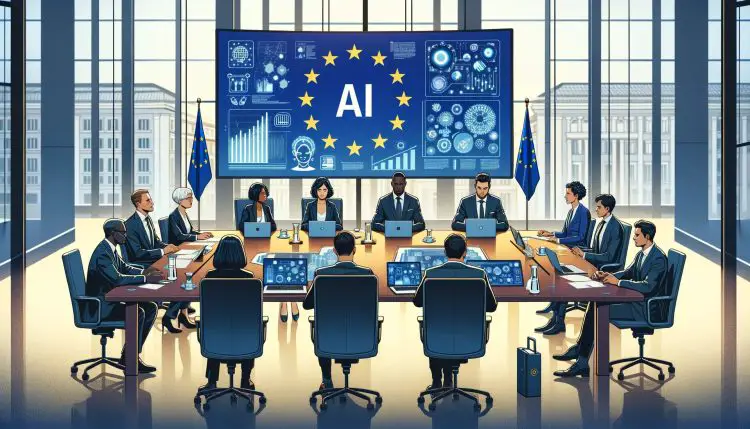The European Union’s agreement on the AI Act marks a significant advancement in artificial intelligence regulation, establishing the most ambitious standards worldwide for AI governance, balancing innovation, safety, and fundamental rights.
EU Policymakers Reach Consensus on AI Legislation
After nearly 38 hours of intense negotiations, European Union policymakers have reached a crucial agreement on a comprehensive framework to regulate artificial intelligence (AI) technologies. This development, known as the AI Act, is seen as a significant milestone in setting global standards for the ethical and responsible use of AI.
The Essence of the AI Act
The AI Act, described by EU chief Ursula von der Leyen as a “global first,” aims to create a unique legal framework. This groundbreaking legislation focuses on ensuring the development of trustworthy AI, emphasizing the safety and fundamental rights of people and businesses. The Act addresses various aspects of AI, including the use of AI in biometric surveillance and the regulation of AI systems like ChatGPT.
Challenges and discussions during negotiations
The agreement on the AI Act was not without its challenges. Lawmakers focused on preventing overregulation of AI innovation while safeguarding the rule of law principles, especially in law enforcement. A notable point of contention was the issue of biometric mass surveillance. Despite efforts, a complete ban on real-time biometric identification was not achieved due to significant opposition from member states.
Impact on AI development and deployment in the EU
The technical details of the AI Act will play a crucial role in shaping AI’s development and deployment within the EU. The Act seeks to balance the growth and innovation potential of AI with the need to protect citizens’ rights. It recognizes AI’s significant role in various sectors and emphasizes the distribution of both opportunities and risks associated with AI use.
Global context of AI regulation
The EU’s AI Act is set against a backdrop of varying global approaches to AI regulation. While the United States has focused on AI’s impact on national security and discrimination, China has introduced regulations mandating AI to align with socialist values. In contrast, the UK and Japan have taken a more hands-off approach to AI regulation.
The political agreement on the AI Act marks the start of critical technical work on the Act’s details, which remain to be finalized. Some critics have raised concerns about the speed of the agreement, suggesting that it might have prioritized quick resolution over thorough quality, potentially impacting the European economy and the broader AI sector.





